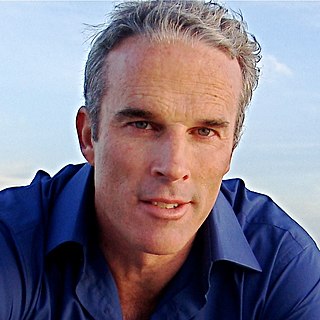A Quote by John Catsimatidis
What transpired at Semgroup was no less than a $500 billion fraud on the people of the world.
Related Quotes
We've got the emPHAsis on the wrong sylLAble when it comes to crime in this country. The FBI says burglary and robbery cost U.S. taxpayers $3.8 billion annually. Securities fraud alone costs four times that. And securities fraud is nothing to the cost of oil spills, price-fixing, and dangerous or defective products. Fraud by health-care corporations alone costs us between $100 billion and $400 billion a year. No three-strikes-and-you're-out for these guys. Remember the S&L scandal? $500 billion.
At the beginning of the 20th century, there were less than 3 billion people on the earth, closer to 2 billion. By all measures that we can come up with right now,. with the lifestyle and consumption pattern of the Western industrial civilization, we can probably sustain about 2 billion people on this earth. We already have over 6 billion. China and India are aspiring to come on as industrial nations, aspiring to the lifestyle of the Western world, and it simply can't happen.
Mother Earth is in pain and ailing - bglobal warming. The world is dealing with issues of immigration, deindustrialization, and poverty. When I was born, there were 2.5 billion people living on the whole planet. Now there are 2.5 billion people living on less than $2 a day. That's the kind of reality we have to deal with.
For half of the world's population, roughly three billion people around the world living on less than two dollars a day, an election is at best a means, not an end; a starting point, not deliverance. These people are looking less for an "electocracy" than for the basic elements that for most of us define a decent life--food, shelter, electricity, basic health care, education for their children, and the ability to make their way through life without having to endure corruption, violence, or arbitrary power.
Roughly two billion people participate in the money economy, with less than half of those living in the wealthy countries of the developed world. These affluent 800 million, however, account for more than 75 percent of the world's energy and resource consumption, and also create the bulk of its industrial, toxic, and consumer waste.



































